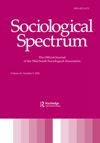医疗高档化和转型:作为城市再发展者的医疗保健系统
IF 1.1
3区 社会学
Q2 SOCIOLOGY
引用次数: 0
摘要
摘要医院和大学对城市空间的重新开发,通常得到公共部门的帮助,被学术研究人员和政策制定者视为一种公共产品,尤其是在去工业化城市。据称,扩大此类服务机构可以促进当地经济,稳定城市核心区人口减少的社区。随着大学附属医院的扩张,它们引发了整个医疗保健部门更广泛的整合,加剧了对独立医院的收购。通过检查纽约州罗切斯特市医疗保健系统内的医院,我们引入了两个新概念,“医疗绅士化”和“医疗换位”,以捕捉正在发生的变化。作为一个中等规模的城市,在罗切斯特,可以看到组织如何在整个景观中交叉。我们认为,在一些社区,变化与医疗保健系统重组的独特特征有关。我们探讨了居民动员的差异,以应对他们所占用和使用的与医疗保健相关的空间的重新开发,并分析了其意义和意义。本文章由计算机程序翻译,如有差异,请以英文原文为准。
Medical gentrification and transposition: health care systems as urban redevelopers
Abstract The redevelopment of urban spaces by hospitals and universities, often aided by the public sector, has been heralded by academic researchers and policy-makers as a public good, especially in deindustrializing cities. Expansion of such service institutions is claimed to boost the local economy and stabilize depopulating neighborhoods in the urban core. As hospitals affiliated with universities expand, they trigger broader consolidation across the entire health care sector, intensifying the acquisition of independent hospitals. Examining hospitals within their health care systems in Rochester, New York, we introduce two new concepts, “medical gentrification” and “medical transposition,” to capture the changes underway. As a mid-sized city, in Rochester it is possible to see how organizations intersect across the entire landscape. We argue that in some neighborhoods change is connected to the distinct characteristics of health care system restructuring. We explore differences in resident mobilization to confront health care-related redevelopment of the spaces they occupy and use, and analyze their meaning and significance.
求助全文
通过发布文献求助,成功后即可免费获取论文全文。
去求助
来源期刊

Sociological Spectrum
SOCIOLOGY-
CiteScore
3.80
自引率
5.60%
发文量
16
期刊介绍:
Sociological Spectrum publishes papers on theoretical, methodological, quantitative and qualitative research, and applied research in areas of sociology, social psychology, anthropology, and political science.
 求助内容:
求助内容: 应助结果提醒方式:
应助结果提醒方式:


